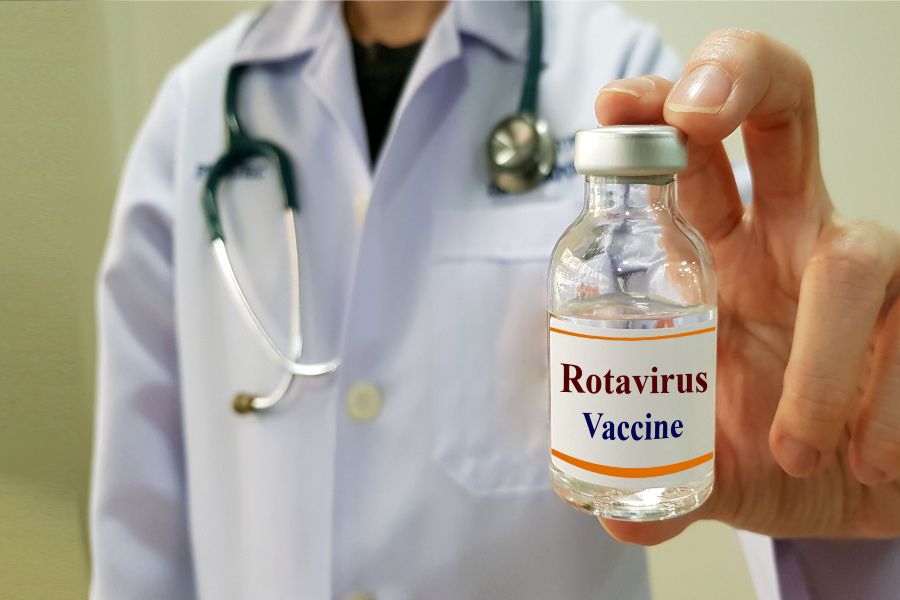Vaccinated children similar to unvaccinated children, new US study shows

By Amy Ratner, director of scientific affairs
The vaccine for rotavirus does not increase or decrease the risk that a child will develop celiac disease, according to a new study from researchers at the University of Michigan.
“We did not find any increased risk with this vaccine, even accounting for several measures of childhood comorbidity,” says the study, published in the journal Scientific Reports.
“Parents hesitant to vaccinate children due to poor health status should be reassured that the risk of chronic conditions is minimal with this vaccine,” wrote the University of Michigan authors. Rotavirus, which causes diarrhea, is common and highly contagious.
The study notes that rotavirus infection has been identified as a trigger for autoimmune disease, and some studies hypothesize that it could be an environmental trigger for celiac disease. Meanwhile, 2019 Finnish research suggested that the rotavirus vaccine may decrease celiac disease in children and adolescents.
The new study was based on the review of 2001 to 2018 health claims data from more than 2 million privately insured children. Associations between rotavirus vaccination and type 1 diabetes have been reported. In the new study, researchers evaluated the risk of the vaccine in both the development of celiac disease and autoimmune thyroid disease, both of which are associated with type 1 diabetes.
They identified nearly 1400 cases of celiac disease and 1000 cases of thyroid disease. Children who were vaccinated or partially vaccinated had a similar risk to children who were eligible to get the vaccine but did not.
The study also found that children born prior to the introduction of the vaccine in 2006 had a lower risk of celiac disease compared to unvaccinated children born after 2006. Researchers attributed this finding to growing incidence of celiac disease over time. Incidence is a measure of how many people are newly diagnosed with a condition in a given time, for example a year. By comparison, prevalence is a count of the total number of people who have a condition in a given time period.
Incidence is sometimes described as new water running into a partially filled bathtub, while prevalence is the total amount of water in the tub.
The study is the largest examination of rotavirus vaccine and celiac disease to date, the authors wrote, and the only investigation of the vaccine and autoimmune thyroid disease.
Scientists have studied the potential link between a variety of viruses and celiac disease. Previous research has linked celiac disease and the reovirus in children, and a higher frequency of enterovirus during early childhood has been associated with later development of celiac disease. In what is described as the largest prospective study of the associations between virus infections and celiac disease, Finnish researchers in 2021 followed 41 children with celiac disease from birth and found an association between enterovirus infections and celiac disease but no association with adenovirus. Similar results were found by in 2019 by researchers from Norway, Sweden and the Czech Republic.
Meanwhile, researchers from the University of Chicago and the University of Pittsburgh in 2017 found a connection in mice between the otherwise harmless reovirus virus and celiac disease. The study found the virus can cause the immune system to overreact to gluten and trigger development of celiac disease.
In the most recent Finnish study, researchers noted that the mechanisms of the association between celiac disease and the enterovirus are not known. Theoretically, the virus might interact with gluten in the lining of the intestine and create inflammation that activates the immune response, according to the study.
University of Michigan researchers cited the large size of their study as one of its strengths. Meanwhile, limitations include the younger age of children studied and the length of enrollment in the study which might have resulted in a failure to capture an association between the rotavirus vaccination and celiac disease in older children.
You can read more about the new study here.
Opt-in to stay up-to-date on the latest news.
Yes, I want to advance research No, I'd prefer not to